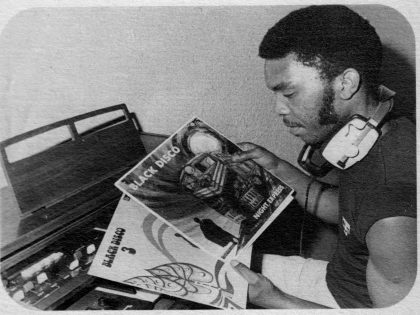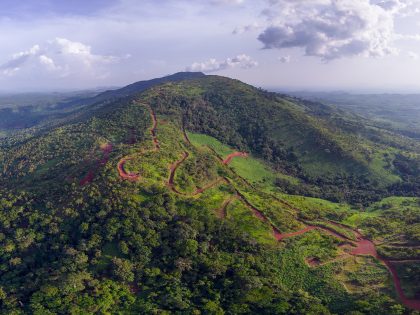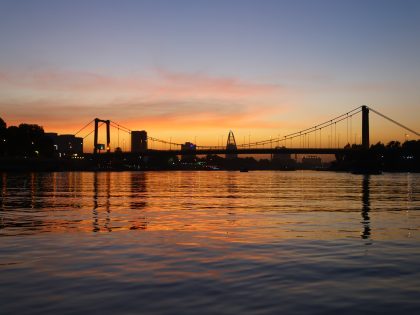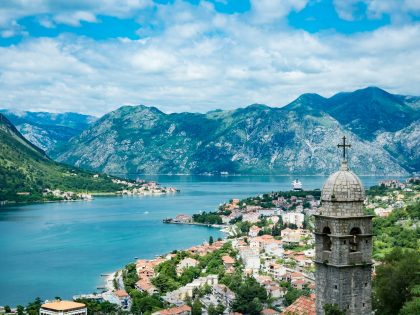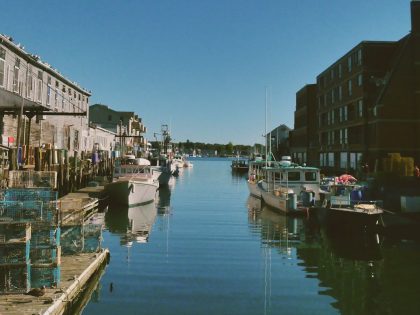Africans Migrate in Africa All the Time
The majority of African migrants move between countries on the continent.

Charles Moses, 30, a new immigrant, in Madina, home to many Nigerians in Accra, Ghana.
Immigration to the West accounts for less than 50% of all global migration according to data from the United Nations. Most people move from one non-Western country to another, yet their stories are rarely told. Journalism about immigration focuses overwhelmingly on those coming to North America and Western Europe, even though individuals who move within the Global South make up the majority of refugees and migrants.
Claire Adida, the author of Immigrant Exclusion and Insecurity in Africa: Coethnic Strangers, published this year, wrote to me in an email: “Africans migrate in Africa all the time, looking for economic opportunity, interacting with members of their host societies, carving out a life for themselves away from their hometown. They have been doing this for generations.” Adida, who is also Associate Professor of Political Science at the University of California-San Diego, added: “Yet we know very little about these communities, their struggles and successes, and we have very little data. This is therefore a phenomenon that remains very much informal and poorly understood.”
In her new book, Adida explores the diversity of immigration experiences in urban West Africa. The book is one of the first to explain immigration integration in the developing world.
Immigrants, for example, make up 3% of Ghana’s population. At least 80% of immigrants who come to the West African nation are from other African states, according to a report from the International Organization for Migration (IMO). Many come from neighboring states, such as Nigeria.
Most economic migrants arrive to Ghana from neighboring countries, partly because Ghana is a part of the Economic Community of West African States (ECOWAS). The economic partnership of fifteen West African countries was founded in 1975, and aims to foster free migration within its borders.
Ghana’s borders have recently become even more porous. Beginning in July, the country began to offer tourist visas on arrival to citizens of all 54 African Union (AU) member states. Historically, it has been more difficult for Africans than for American and European tourists to travel within their own continent.
While in Ghana’s capital in June, I met a group of Nigerian immigrants selling cellphones along the streets of Madina, a bustling neighborhood on the outskirts of Accra. One of them, Henry Nnamdi, 33, held up a shiny red Samsung, and explained that he left three young kids to move to Ghana four years ago to earn more money for his family.
In the same market was Charles Moses, 30, another mobile phone salesman. He came to Ghana only six months ago, after the Nigerian government demolished his clothing boutique in order to build a bridge.
While his lack of knowledge of local languages has made meeting new friends difficult, “We Nigerians mingle with Ghanaians very easily,” he said. Nnamadi and Moses are some of the thousands of Nigerian immigrants who come to Ghana each year, largely to find opportunities for work.
While many migrants who leave neighboring countries to come to Ghana are unskilled laborers, some bring important trades to the country.
“I decided to move to Ghana because I wanted to learn an approach to medicine in an Anglophone country,” Van Nam Glouzon, 30, a doctor originally from Ivory Coast explained to me. Glouzon, who also speaks French and Russian, noticed that most medical research is written in English, and believed practicing in an English-speaking country would allow him to stay on the cutting-edge of his field.
According to research conducted at the University of Ghana’s Centre for Migration Studies, a significant number of male migrants who came to Accra reported that moving delayed marriage. Many said they had trouble renting a room, which delayed marriage even further.
Not all people who come to Ghana from neighboring countries are male. Nearly half of them are women, the University of Ghana report indicated. Olivia Ogechi, 26, is one of them. She moved from Nigeria’s southern Imo State in order to pursue nursing school in Accra.
“I have a passionate need to serve people,” she said while organizing the colorful women’s shoes she sells in the city’s street markets. “Ghana is a cool place to stay,” she continued.
The IMO report showed also that not every immigrant to Ghana comes from a neighboring state. Fifteen percent come from Europe, like Torbjörn “Toby” Bergman.
The 43-year-old emigrated from Sweden two years ago to open Chuck’s Bar & Restaurant, an upscale continental eatery in Tamale, a city in northern Ghana 10 hours from Accra by car. On a Friday night, the restaurant’s expansive backyard was packed, in part because it’s one of the only places like it in town.
“We changed something about this city when we opened this place,” he said.
Many of the people who come to Ghana arrive under more unfortunate circumstances than Bergman. In recent years, Ghana has seen a large increase in the number of refugee and asylum seekers, according to the United Nations Refugee Agency (UNHCR).
The Ghanaian government has sometimes botched its responses to the influx. In June, more than 40 asylum seekers, including infants, were left to sleep in the open near Accra’s international airport, according to Joy News. The Ghana Refugee Board (GRB) chose to repatriate them back to their countries of origin.
“It was a number of refugees from the Republic of the Congo, Nigeria, central Africa, and other countries who were lodging on the lawn of a benevolent Ghanaian,” said Sheila Tamakloe, the journalist who reported the story. Some refugees were even sleeping on the lawn of the GRB.
According to Professor Adida, “Inter-African migration brings both promise and peril to African host societies. It brings promise because African migrants open up new economic opportunities by creating or bringing new goods, new trading routes, new institutions,”
“At the same time, African migrants are – just like everywhere else in the world – easy scapegoats when an economy contracts, and unemployment and instability rise.”
What is clear is that each individual who immigrates to Ghana, or to any country on the globe has their own narrative, no matter their reason for movement. What can be done now is to continue to tell their stories, especially those largely undocumented in the Global South.












